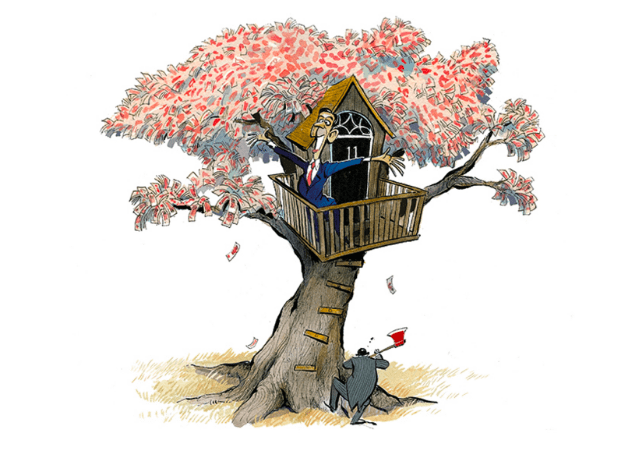Car workers in Sunderland are doing just fine. Construction workers still have jobs. And the food is still getting to the supermarkets, even if there are some occasional disruptions to supply.
Not many of the dire warnings about the consequences of leaving the European Union have actually come to pass. There is, however, one group that looks likely to be hit, even if no one quite predicted it. The pensioners. It looks certain to cost them the ‘triple lock’ on their pensions: although since many of them voted for Brexit, they can hardly complain.
The government is tying itself up in knots on how to wriggle out of the ‘triple lock’
The government is tying itself up in knots on how to wriggle out of the ‘triple lock’. A long-standing manifesto commitment, it mandates that the state pension goes up by 2.5 per cent a year, or the rate of inflation, or the rate of average earnings, depending on which is the highest.
When it was dreamt up, back in the far distant days of David Cameron and George Osborne, promising to raise pensions by more than 2.5 per cent if average earnings accelerated more quickly than that must have seemed an easy pledge to make. It was a bit like promising a week off if England won the World Cup. There was so little chance of it actually happening that it wasn’t something to worry about it, but it made everyone feel good.
For most of the decade, average earnings struggled to rise by more than two per cent annually. Indeed, it took until 2014 for earnings to get back to the level before the 2008 crash. Whatever other problems a government might face, rapidly rising earnings was not one of them.
This year, of course, that has changed, and dramatically so. Average earnings are already accelerating at more than eight per cent, and may soon be rising even faster than that. Led by the lorry drivers, firms have been forced to offer rises to fill all their vacancies. The reason? The furlough scheme hasn’t helped, and neither has the vast stimulus pumped into the economy. But the main explanation is that we have left the EU, the supply of cheap labour has been turned off, and wages are therefore rising, much as the textbooks would suggest.
Of course, there is nothing wrong with that. Rising wages are a good thing, even if they cause some disruption in the short term. Governments have been worrying about how to make that happen for years. The only snag is it makes the triple lock a serious problem. It is going to cost £5 billion a year to keep up with the rise in earnings, at a time when the deficit is already vast, and there are plenty of other demands on the Chancellor’s budget.
So the answer? It will probably have to be downgraded to a double lock: either 2.5 per cent a year, or the rate of inflation, depending on which is higher. Although it might cause a brief storm, if the Chancellor Rishi Sunak simply explains the triple lock is collateral damage from Brexit, many pensioners will probably be quite happy with that.






Comments